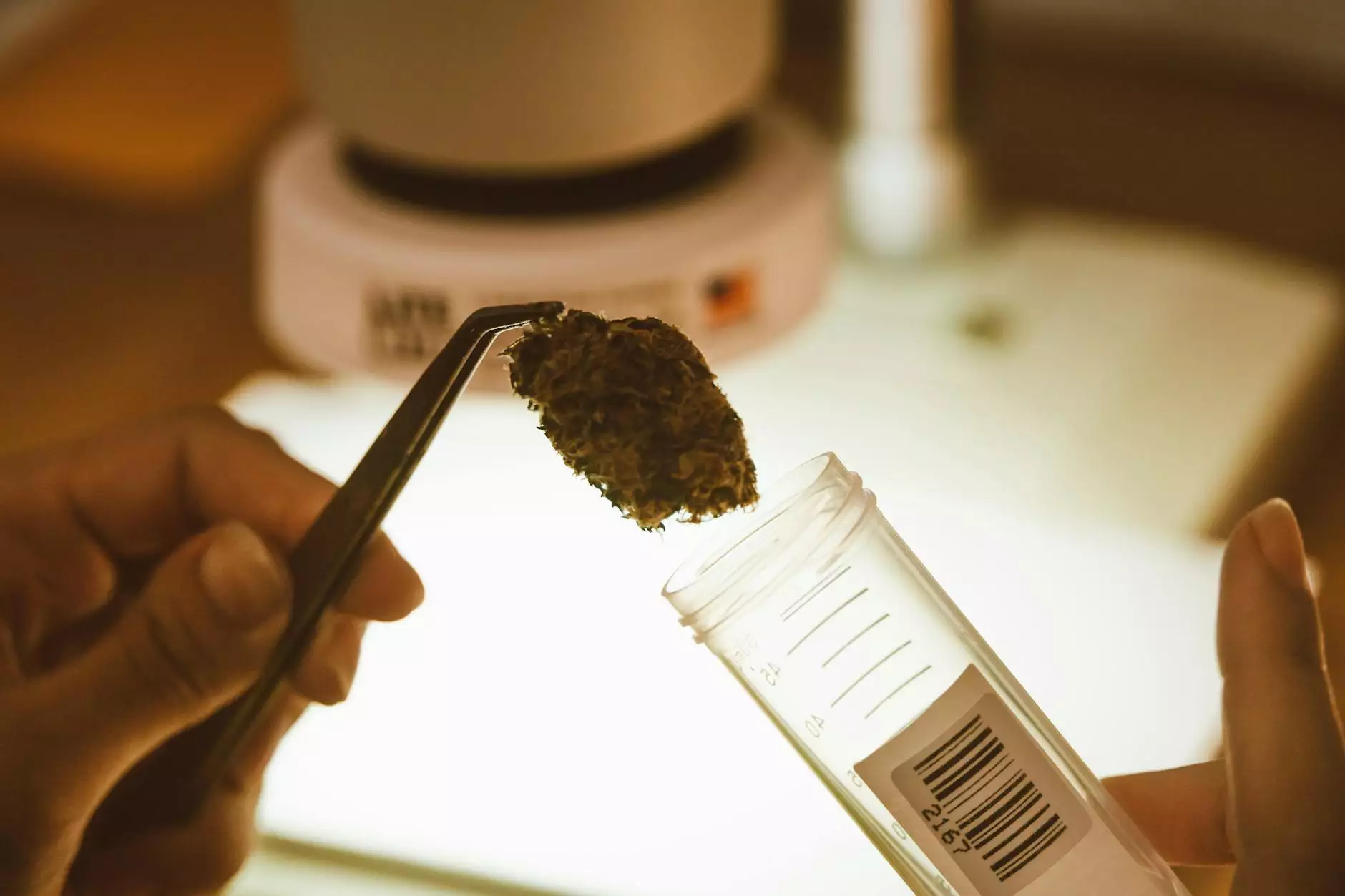Unlocking the Potential of Medicinal Cannabinoids in Pharmacy and Alternative Medicine

In today's fast-paced world, the search for effective health solutions is pressing. Medicinal cannabinoids represent a groundbreaking approach that blends traditional pharmacy with alternative medicine, providing promising avenues for wellness. This article dives deep into the rich world of medicinal cannabinoids, exploring their benefits, uses, and the evolving landscape of the pharmaceutical industry.
Understanding Medicinal Cannabinoids
Medicinal cannabinoids are compounds derived from the cannabis plant that interact with the body's endocannabinoid system. This system plays a crucial role in regulating various physiological processes, such as mood, pain sensation, and immune response. Two of the most researched cannabinoids are:
- THC (Tetrahydrocannabinol): Known for its psychoactive effects, THC also provides various medicinal benefits, including pain relief and appetite stimulation.
- CBD (Cannabidiol): Unlike THC, CBD is non-psychoactive, making it an appealing option for therapeutic use without the "high". It has been shown to reduce anxiety, inflammation, and seizures.
The Science Behind Medicinal Cannabinoids
Research into the therapeutic effects of medicinal cannabinoids has advanced significantly over the past two decades. Studies have highlighted their potential in treating a variety of conditions, including:
- Chronic Pain Management: Cannabinoids are increasingly recognized for their ability to alleviate chronic pain conditions, including arthritis and neuropathy.
- Neurological Conditions: Conditions like epilepsy and multiple sclerosis have shown positive responses to cannabinoid treatments, with reduced seizure frequency and muscle spasticity.
- Mental Health Disorders: The anxiolytic properties of CBD may offer new hope for those suffering from anxiety and depression, providing a natural methodology for management.
The Benefits of Medicinal Cannabinoids
Harnessing the power of medicinal cannabinoids can lead to a myriad of benefits, both mental and physical. Here are some of the most notable advantages:
1. Natural Pain Relief
Many individuals seek out medicinal cannabinoids as an alternative to opioid medications. Cannabinoids can effectively reduce pain and inflammation by interacting with the body’s pain receptors, providing a safer long-term solution for pain management.
2. Improved Mental Health
As awareness grows about mental health, many are turning to medicinal cannabinoids. CBD, in particular, has been the focus of studies that suggest it may help mitigate symptoms of anxiety and depression by promoting a sense of calm and relaxation.
3. Reduction in Seizures
Clinical trials have highlighted CBD's efficacy in treating epilepsy. For patients with Dravet syndrome and Lennox-Gastaut syndrome, two severe forms of epilepsy, medicinal cannabinoids have proven to significantly reduce seizure frequency.
4. Enhanced Sleep Quality
Individuals suffering from insomnia or other sleep disorders may find relief through the sedative properties of THC. Additionally, CBD has been noted for its ability to address factors that contribute to sleep disturbances, such as anxiety and stress.
Incorporating Medicinal Cannabinoids into Pharmacy Practices
The integration of medicinal cannabinoids into pharmacy practices is becoming increasingly common. Pharmacists play a critical role in educating patients about cannabinoid options and helping them navigate the potential benefits and risks associated with their use. Some key aspects to consider include:
- Dosage Forms: Medications may include oils, tinctures, capsules, and topical applications, allowing for tailored therapies based on patient needs.
- Personalized Treatment Plans: As with all medications, there is no "one-size-fits-all". Pharmacists can help design personalized treatment regimens to maximize benefits while minimizing side effects.
- Monitoring and Support: Ongoing assessment of patient progress is vital. Pharmacists can provide invaluable support during the treatment process, ensuring safe and effective use.
Exploring Alternative Medicine and Cannabinoids
Alternative medicine practitioners often utilize medicinal cannabinoids alongside other natural therapies to create holistic treatment plans. The synergy between cannabinoids and other natural substances can enhance therapeutic outcomes. Common combines include:
- Aromatherapy: Combining essential oils with cannabinoid-based products can create an effective holistic approach to managing stress and enhancing relaxation.
- Herbal Supplements: Pairing cannabinoids with herbs known for their health benefits, like turmeric or ginger, may enhance their medicinal effects—offering an integrated approach to health.
- Acupuncture and Cannabinoids: Some alternative medicine practitioners advocate for the combination of acupuncture with cannabinoid treatments to manage pain and improve overall well-being.
Challenges and Considerations
While the potential of medicinal cannabinoids is vast, several challenges remain as the industry evolves:
1. Legal and Regulatory Frameworks
The status of cannabis products varies widely across different regions. Understanding local regulations and the legal landscape is crucial for both consumers and healthcare providers.
2. Quality and Consistency
The quality of cannabinoid products can differ dramatically between manufacturers. Patients must seek products that are third-party tested for purity and potency to ensure safety and efficacy.
3. Education and Awareness
Educating patients about the benefits and risks associated with medicinal cannabinoids is critical. Many consumers remain unaware of the potential uses and effects, highlighting the need for comprehensive information dissemination.
The Future of Medicinal Cannabinoids
The future of medicinal cannabinoids looks promising, with ongoing research exploring new therapeutic applications. As regulations continue to evolve, the integration of cannabinoids into mainstream healthcare practices is likely to become more streamlined.
1. Continued Research and Development
As interest in cannabinoids grows, so does the potential for new product development. Future formulations and delivery methods will likely expand the use of cannabinoids in pharmacy settings.
2. Expansion of Health Insurance Coverage
As the therapeutic benefits of medicinal cannabinoids become more widely recognized, there is potential for health insurance providers to begin covering cannabinoid treatments, increasing patient access.
Conclusion
Medicinal cannabinoids represent an exciting intersection of pharmacy and alternative medicine, providing innovative solutions for many health issues. As more people explore the benefits of cannabinoids, it is essential to remain informed and engage with healthcare professionals who specialize in this field. With ongoing research, better regulatory frameworks, and increased education, the future of health and wellness using medicinal cannabinoids is bright. For those looking to enhance their health naturally, exploring these options can unlock a new realm of possibilities.



